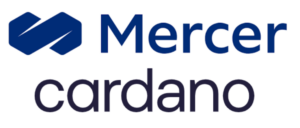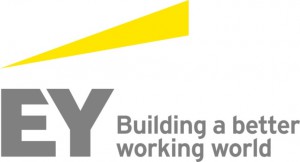More than a 100 quants visited the TopQuants 2011 Autumn Workshop
[slideshow id=2]
TopQuants 2011 autumn workshop hosted by ABN Amro in Dialogues House
On 30 November 2011, the 2011 autumn workshop on “Current topics in modeling”, the second TopQuant event this year, took place in Amsterdam. The workshop was held at the ABN Amro Dialogues House and was attended by more than 100 quantitative professionals.
Several parallel sessions were offered with in total nine speakers from banks, audit and consultancy firms as well as from academia covering a broad range of topics. TopQuants devised this format in order to give the attendees of the event the opportunity to attend two sessions and get exposed to or discuss these topics of their choice in somewhat more depth than could be achieved during a plenary session. The format of the workshop reflected the comments and suggestions received from participants of the TopQuants symposium in June 2011. A survey conducted by TopQuants had indicated the desire among the quant community to have an event with more technical topics and of an interactive format. Therefore, in all parallel sessions, discussions between the host/presenter and the participants as well as between the participants themselves were explicitly encouraged.
Below a short overview of the parallel sessions offered at the workshop will be given. Presentations can be downloaded by following the hyperlinks.
Josette van Soest (ABN Amro Basel centre) talked about the need for advanced modeling triggered by the regulatory directives often referred to as Basel 3. While not a quant herself, Josette defended the quant community against the criticism of low model quality in connection with the credit crunch by arguing that not incorrect models, but improper model usage was to blame. She called for increased efforts by the quants to make model assumptions and limitations more explicit and to provide more education and explanation to model users.
In a joint session, Drona Kandhai (ING and University of Amsterdam) and Tim Mexner (ABN Amro Product Analysis) discussed hedge tests as a tool in pricing model validations. In a hedge test, the performance of a model is assessed on the back of a series of real, historical market data.
Frank de Jonghe and Siobhan Tipping (both Ernst & Young) presented the results of a survey on Credit Value Adjustments, or CVA, practises among more than 15 big European institutions. Ever since the credit crunch, CVA has been one of the focal points of modeling efforts. Several participants expressed after the event that they found the CVA presentation and discussion provided a highly valuable methodological benchmark.
Another session, presented jointly by Cuong Bui (Loki IT Solutions) and Tim Wood (ING), was dedicated to CUDA, a new technology already utilized by some people in the field for the efficient IT implementation of financial models.
Martin van Buren (Rabobank) talked about the Incremental Risk Charge (IRC). The IRC is a new capital charge devised to reflect the impact of credit quality migration and default risk on trading book positions. In response to regulatory requirements, many banks are currently developing and implementing IRC models, so the presentation and ensuing discussion was much appreciated by session participants.
Andre Lucas (Vrije Universiteit Amsterdam) gave a presentation on generalized autoregressive score models. These constitute a novel, computationally efficient and econometrically founded framework to model time-varying parameters. Session participants commented very positively on the presentation and were particularly interested in the applications of this framework to modeling conditional default probabilities and the time variation of correlations.
After the parallel sessions, speakers and participants were offered complimentary drinks and food and could continue their discussions in an informal setting.
The event provided excellent opportunities for all attendees to get updated on recent developments in the field and to discuss these with colleagues from other institutions. TopQuants are pleased by the Dialogues House setup and infrastructure which are ideally suited for such an event. Participant reactions were also very positive.
TopQuants acknowledge the generous sponsoring for this workshop received from ABN Amro, in particular from the Dialogues House and the Model Validation department.
Everyone registered for this event has received an electronic questionnaire. TopQuants will take the comments and feedback into account in the organization of future events. Watch the TopQuants webpage for more information about our activities in 2012, to be released in due course!
The TopQuants Team
Events
-
Autumn (in Winter) event 2024/2025
-
Quant Careers 2024
-
Spring Event 2024
-
Autumn Event 2023
-
College Tour for Professionals, Vol 4
-
Spring Event 2023
-
Young Quant Finance Professionals Symposium 2023
-
Autumn Event 2022
-
Spring Event 2022
-
Spring Event 2021
-
Autumn Event 2020
-
Spring Event 2020
-
End of LIBOR Breakfast Workshop
-
Autumn Event 2019
-
Benchmark reform breakfast seminar
-
College Tour on Data Analytics for Professionals, Vol 3
-
Spring Event 2019
-
Validation of Machine Learning Models
-
Python breakfast seminar
-
College Tour on Data Analytics for Professionals, Vol 2
-
Autumn Event 2018
-
Quant Careers 2018
-
College Tour on Data Analytics for Professionals
-
Spring Event 2018
-
Autumn Event 2017
-
Quant Careers 2017
-
Spring Event 2017
-
Autumn Event 2016
-
Quant Careers 2016
-
Spring Event 2016
-
Boom Bust Boom
-
Autumn Event 2015
-
Quant Careers 2015
-
Spring Event 2015
-
Autumn Event 2014
-
Quant Careers 2014
News
-
Call for contributions – Autumn in Winter 2024/2025
TopQuants – the networking organisation by quants for quants based in the Netherlands – asks you to save the date — Read more
-
Winter School on Mathematical Finance 2025
We would like to alert you about the upcoming Winter School on Mathematical Finance, which will be held between the — Read more
-
Register now for Quant Careers 2024
Registration for our Quant Careers 2024 event is open now, the event will take place on December 2, 2024.

